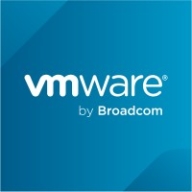

Find out what your peers are saying about Camunda, BMC, Temporal Technologies and others in Process Automation.
The main return on investment with Helix Control-M has been a reduction in downtime and minimization of manual interventions, which has improved our operational efficiency.
You can run a million batch jobs or tasks at night when all of your highly skilled people are at home sleeping.
By implementing automation tools, you can minimize human errors and improve efficiency.
They quickly evolve with changing technology trends, easily adopt new features, and incorporate them into the product.
The support is accurate, and BMC is always ready to help with queries and complex incidents.
The technical support is very polite, helpful, and available 24/7.
We never had major issues to report or request support.
Our license doesn't limit our ability to configure Control-M as needed, allowing us to easily create new agents or environments.
I am paying for a top-end tool which rarely experiences issues, with most problems stemming from the applications being managed rather than the tooling itself.
It can absorb more workload wherever needed.
Control-M itself is robust, and it would receive a rating of 10.
The downtime is higher compared to AWS.
The testing and development phases need to be more rigorous before releasing patches.
They could provide more documentation and tutorials to make the initial setup easier to understand.
We've experienced main problems with MFTE where having one setup means when an error occurs, the entire service goes down.
Documentation should be maintained for all versions since they provided the application.
It operates for both of my products, however, as a product, it is complicated to integrate and automate with other products.
The licensing cost is very high, and they often consider switching to IBM Workload Scheduler or other options.
Control-M tends to be more expensive compared to other solutions, but users get great value from it.
Control-M is among the highest-priced solutions in the market.
Automation is more advanced, deployment is fast, and version control has been simplified.
The user interface is comprehensive and lets me view all my jobs on one page, monitor everything, and access the job history.
If I have a staff that operates Control-M on Windows Server, they will easily pick it up if they need to run it on Unix or mainframes. It's the same interface, saving time and improving efficiency.
It helps us automate the workflow of creating many VMs and the TensorFlow key method.
We have strong regulations for maintaining compliance and mitigating risks with this product.
| Product | Market Share (%) |
|---|---|
| Control-M | 3.5% |
| Camunda | 15.8% |
| Temporal | 5.8% |
| Other | 74.9% |
| Product | Market Share (%) |
|---|---|
| VMware Aria Automation | 6.2% |
| Morpheus | 4.7% |
| VMware Aria Operations | 4.5% |
| Other | 84.6% |
| Company Size | Count |
|---|---|
| Small Business | 37 |
| Midsize Enterprise | 23 |
| Large Enterprise | 146 |
| Company Size | Count |
|---|---|
| Small Business | 32 |
| Midsize Enterprise | 24 |
| Large Enterprise | 130 |
Control-M, from BMC, provides robust orchestration capabilities for managing hybrid cloud workflows, available both on-premise and as a SaaS option. Control-M from BMC supports growing teams in automating and scheduling enterprise workload processes.
Control-M serves as a versatile tool for businesses, enabling automation across diverse platforms like SAP, mainframes, and cloud environments. It simplifies job scheduling with an intuitive GUI and integrates with multiple applications and platforms. Users benefit from managed file transfers, role-based administration, and self-service portals, enhancing security and workflow management. While the platform offers comprehensive alerting, reporting, and batch impact management, feedback has highlighted areas for improvement such as more flexible job execution, enhanced reporting capabilities, and better integration with third-party tools. Additionally, licensing costs and support during upgrades are common concerns. Organizations value Control-M for its ability to facilitate secure file transfers and support business-critical operations, minimizing manual intervention and ensuring efficiency.
What are the key features of Control-M?
What benefits should you look for in Control-M reviews?
Control-M is instrumental in industries managing complex workflows and IT operations. In finance, it offers accurate real-time data processing. Supply chain sectors benefit from its orchestration capabilities to streamline operations and minimize disruption. IT departments leverage integration capabilities to optimize workflow processes, ensuring seamless application management.
VMware Aria Automation is a cloud management tool that allows companies to simplify their cloud experience through a modern automation platform. The solution is designed to deliver self-service clouds, multi-cloud automation with governance, and DevOps-based security and infrastructure management. It helps organizations improve IT agility, efficiency, and productivity through its various features.
VMware Aria Automation has multiple use cases that include the following:
VMware Aria Automation Features
VMware Aria Automation has various features that allow users to easily perform operations. Some of the solution's capacities include:
VMware Aria Automation Benefits
VMware Aria Automation offers its users various benefits. Some of the biggest advantages that the solution brings to companies that utilize it include:
Reviews from Real Users
Awais J., CTO/CEO at a tech services company, likes VMware Aria Automation because it saves a lot of time, provides more visibility, and has extensive automation capabilities.
An IT consultant at a government rates VMware Aria Automation highly because the product gives you flexibility to analyze and consume resources.
We monitor all Process Automation reviews to prevent fraudulent reviews and keep review quality high. We do not post reviews by company employees or direct competitors. We validate each review for authenticity via cross-reference with LinkedIn, and personal follow-up with the reviewer when necessary.